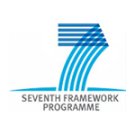STRATEMOTIONS - Reasoning about Strategic Interactions and Emotions

Pierpaolo Battigalli
Principal Investigator
ERC-2012-AdG
March 2013 - February 2018
Grant Agreement ID:324219
I propose to develop a general framework to analyze the dynamics of social and economic interaction between intelligent agents, who may nonetheless be affected by their emotions and exhibit time inconsistent preferences. A crucial aspect of the analysis is modelling how agents form and change their beliefs about the environment and about each other, including beliefs about beliefs. The reason is twofold; first, in order to reason strategically, agents try to figure out how other agents think; second, emotions triggered by beliefs, including beliefs about the beliefs and intentions of other agents, may affect choice. Another essential ingredient is the impossibility to commit (even covertly) to any particular contingent course of action, unless such irreversible commitment is allowed by the rules of the game. Intelligent agents with non-Bayesian attitudes toward uncertainty, disappointment aversion, present-bias, and other realistic psychological features should take this into account when planning. This leads to a distinction between actual behaviour and plans, which is essential to express the concept of intentionality and hence the ability to assess the intentionality of other agents’ observed actions. Such assessment is important to figure out the likely future moves of a co-player in a game, or his private information, as well as for the cognitive appraisal that may affect emotional reactions to positive or aversive events in social and economic environments.
Developing such methodology is one part of the project of independent interest. Next, I plan to apply it to specific problems such as the analysis of (i) learning and stable patterns of behaviour when agents are ambiguity averse, (ii) the sources and consequences of emotions like anger in social environments, and (iii) how non-binding agreements may induce interactive beliefs that make them self-enforcing.
- "Analysis of Information Feedback and Selfconfirming Equilibrium" (with S. Cerreia Vioglio, F. Maccheroni, M. Marinacci), Journal of Mathematical Economics (2016), 66, 40-51. "A Note on Comparative Ambiguity Aversion and Justifiability" (with S. Cerreia Vioglio, F. Maccheroni, and M. Marinacci), Econometrica (2016), 84, 1903-1916.
- Battigalli P. (with G. Attanasi and E. Manzoni), "Incomplete Information Models of Guilt Aversion in the Trust Game" , Management Science, in print.
- Battigalli P. (with S. Cerreia Vioglio, F. Maccheroni, M. Marinacci),"Self-Confirming Equilibrium and Model Uncertainty", American Economic Review (2015), 105, 646--677.
- Battigalli P. (with G. Charness and M. Dufwenberg), "Deception: The Role of Guilt", Journal of Economic Behavior & Organization (2013), 93, 227-232.
- Battigalli P. (with A. Prestipino), "Transparent Restrictions on Beliefs and Forward Induction Reasoning in Games with Asymmetric Information", The B.E. Journal of Theoretical Economics (2013), 13: Iss. 1 (Contributions), 1-53.
- Francetich, A., “Becoming the Neighbor Bidder: Endogenous Winner's Curse in Dynamic Mechanisms,” American Economic Journal: Microeconomics, 7.2 (2015): 45-76.
- Francetich, A. (with D. Kreps), “Bayesian inference does not lead you astray… on average,” Economics Letters, 125.3 (2014): 444-446.
- "Ambiguity Attitudes and Self-Confirming Equilibrium in Sequential Games" (with G. Lanzani, E. Catonini, and M. Marinacci), IGIER working paper 607.
- "Interactive Epistemology in Simple Dynamic Games with a Continuum of Strategies" (with G. Beneduci and P. Tebaldi), IGIER working paper 602.
- "Learning and Self-Confirming Long-Run Biases" (with A. Francetich, G. Lanzani, and M. Marinacci), IGIER working paper 588.
- “Rational Preferences and Rationalizable Choice” (by S. Cerreia-Vioglio, A. Giarlotta, S. Greco, F. Maccheroni, and M. Marinacci), IGIER working paper 589.
- "Disclosure of Belief-dependent Preferences in a Trust Game", Giuseppe Attanasi, Pierpaolo Battigalli, Rosemarie Nagel

This project has been funded by the European Research Council under the specific programme "Ideas" implementing the Seventh Framework Programme of the European Community for research, technological development and demonstration activities.